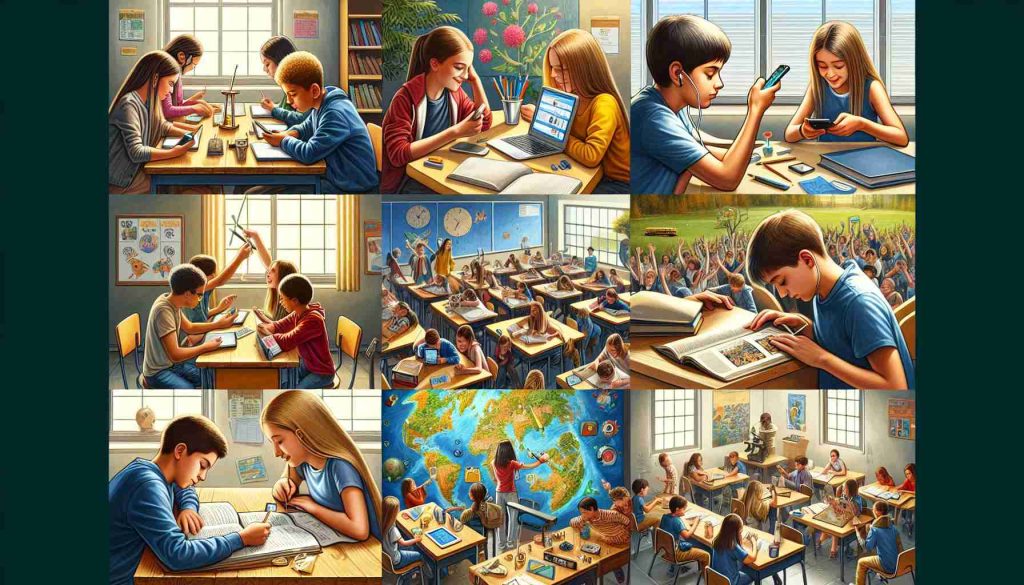Students in Budapest took to the streets in protest after the dismissal of a high school principal who refused to enforce a government-mandated ban on mobile devices.
A recent decision by the government to implement a strict “tech ban” in schools has sparked outrage among students and teachers alike. The controversial policy requires schools to confiscate phones and smart devices from students at the beginning of each day, leading to widespread discontent.
The protest, which saw thousands gather at the Interior Ministry headquarters, highlighted broader concerns about the state of public education in Hungary. Critics argue that the ban is a shallow attempt to address larger systemic issues within the education system.
One retired teacher expressed her dismay at the lack of consultation regarding the new measures, emphasizing the need for a more inclusive approach to educational policy-making. Other demonstrators echoed her sentiments, calling for a more thoughtful and nuanced approach to technology in schools.
While the government justifies the ban as a means to promote discipline and focus in classrooms, many students believe that it hinders their ability to learn and adapt in a tech-driven world. They advocate for a more balanced approach that teaches responsible digital citizenship rather than outright prohibition.
As the debate rages on, it remains to be seen whether authorities will reconsider their stance on the controversial tech ban, or if students and teachers will continue to push back against what they see as a restrictive and outdated policy.
The recent student protests in Budapest against the tech ban have brought to light a myriad of issues surrounding education and technology. As the situation continues to evolve, there are several key questions and challenges that arise in this ongoing debate:
1. What are the advantages of the tech ban?
The government argues that the tech ban promotes discipline and focus in classrooms, potentially reducing distractions and improving academic performance. It aims to create a more controlled environment where students can concentrate on their studies without the temptation of constant digital distractions.
2. What are the disadvantages of the tech ban?
On the other hand, students argue that the ban hinders their learning process in a world that is increasingly reliant on technology. They believe that instead of outright prohibition, a more balanced approach that educates students on responsible digital citizenship would be more beneficial in preparing them for the future.
3. Are there alternative solutions to the tech ban?
Some suggest that rather than confiscating devices, schools could implement policies that regulate the use of technology in classrooms. This could involve setting guidelines for when and how devices can be used for educational purposes, striking a balance between utilizing technology as a learning tool and minimizing distractions.
4. What role does student input play in educational policy-making?
The lack of consultation with students and teachers regarding the implementation of the tech ban has sparked criticism about the transparency and inclusivity of decision-making processes in education. Engaging students in discussions about policies that directly affect them is crucial for creating a more effective and responsive educational system.
In conclusion, while the tech ban may have well-intentioned goals such as promoting discipline, it also raises important questions about the balance between control and innovation in education. Finding solutions that address the concerns of students and teachers while ensuring a conducive learning environment is essential for moving forward in this debate.
For further information on education policies and student activism, you can visit Education Department.























